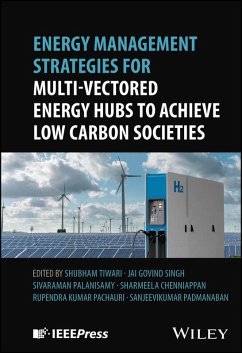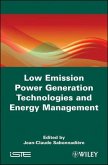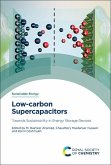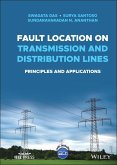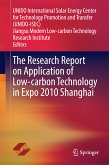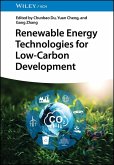Comprehensive reference on multi energy hub (MEH) modeling, management, protection, and trading across energy exchange markets with supporting case studies
Energy Management Strategies for Multi-Vectored Energy Hubs to Achieve Low Carbon Societies discusses the complex exchange process across different sources within an evolving set of technologies, presenting multi-vectored energy hub (MV-EH) modeling techniques and associated energy management strategies for their network architecture. This includes in-depth assessments of advanced energy conversion technologies, market mechanisms, and transactive energy management to ensure robust and flexible energy-sharing mechanisms. The book focuses on renewable energy integration in MV-EHs, advanced energy storage, and advance energy conversion technologies.
Later chapters cover detailed analyses of Power-to-X (P2X) technologies, bioenergy integration, and emerging challenges in high-renewable penetration in energy hubs. Case studies of MV-EHs explore the latest advancements such as the carbon tax mechanism, carbon trading strategies, the role of hydrogen generation, and carbon storage to enhance MV-EH performance. Readers will find insights into the integration of carbon reduction techniques (CDR) and emission trading mechanisms, along with the role of bioenergy in building the low emission energy systems. Mathematical models of various new energy conversion systems such as power to gas (P2X), hydrogen storage, and hydrogen usage are also explored.
Edited by a team of highly qualified authors, this book covers additional topics such as:
Delivering a thorough understanding of networked multi-vectored energy systems, and their role in sustainable energy transitions, Energy Management Strategies for Multi-Vectored Energy Hubs to Achieve Low Carbon Societies is an essential reference for engineers, researchers, and graduate students developing energy systems, smart grids, and decarbonization strategies.
Energy Management Strategies for Multi-Vectored Energy Hubs to Achieve Low Carbon Societies discusses the complex exchange process across different sources within an evolving set of technologies, presenting multi-vectored energy hub (MV-EH) modeling techniques and associated energy management strategies for their network architecture. This includes in-depth assessments of advanced energy conversion technologies, market mechanisms, and transactive energy management to ensure robust and flexible energy-sharing mechanisms. The book focuses on renewable energy integration in MV-EHs, advanced energy storage, and advance energy conversion technologies.
Later chapters cover detailed analyses of Power-to-X (P2X) technologies, bioenergy integration, and emerging challenges in high-renewable penetration in energy hubs. Case studies of MV-EHs explore the latest advancements such as the carbon tax mechanism, carbon trading strategies, the role of hydrogen generation, and carbon storage to enhance MV-EH performance. Readers will find insights into the integration of carbon reduction techniques (CDR) and emission trading mechanisms, along with the role of bioenergy in building the low emission energy systems. Mathematical models of various new energy conversion systems such as power to gas (P2X), hydrogen storage, and hydrogen usage are also explored.
Edited by a team of highly qualified authors, this book covers additional topics such as:
- Types of frameworks to manage network energy hubs, cooperative and non-cooperative strategies, and centralized, decentralized, and distributed system architectures
- Advanced energy conversion units such as electric heat pumps, combined heat and power units, gas boilers, absorption chillers, electric chillers, and energy storage units
- The role of bioenergy, power-to-X, hydrogen, carbon reduction techniques (CDR), carbon taxes, carbon market, and trading strategies in achieving low energy systems
- Technologies to enhance flexibility in MEHs such as electrical, heating, cooling, and community demand response programs
- The impact of high or full share of renewables and load-side uncertainties on MV-EH operations
Delivering a thorough understanding of networked multi-vectored energy systems, and their role in sustainable energy transitions, Energy Management Strategies for Multi-Vectored Energy Hubs to Achieve Low Carbon Societies is an essential reference for engineers, researchers, and graduate students developing energy systems, smart grids, and decarbonization strategies.
Dieser Download kann aus rechtlichen Gründen nur mit Rechnungsadresse in D ausgeliefert werden.

